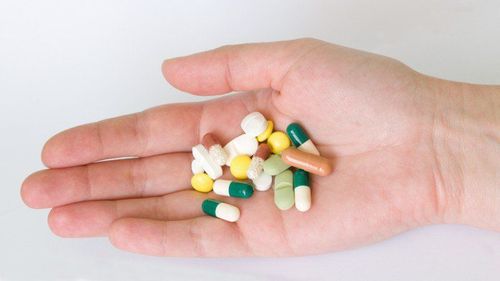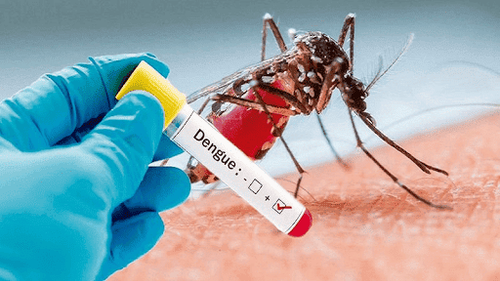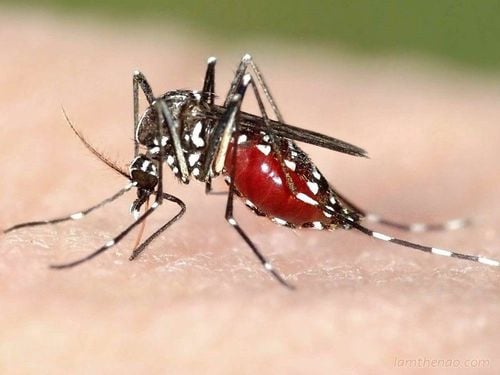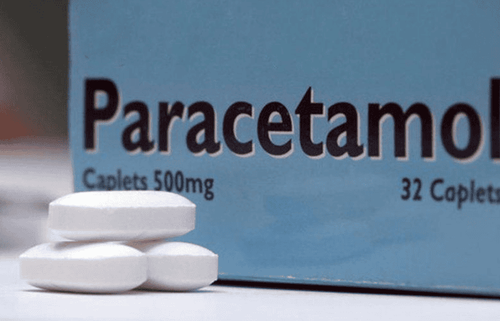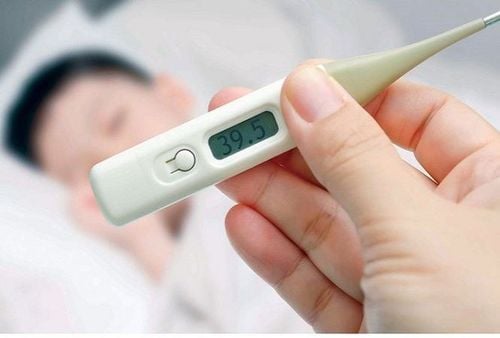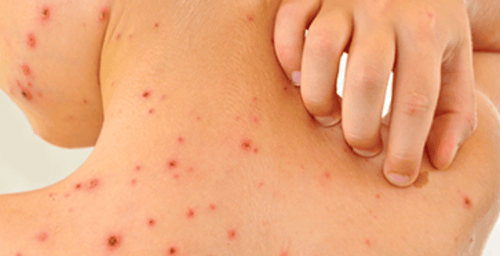This is an automatically translated article.
The article was professionally consulted by Master, Doctor Nguyen Thi Nhat - Infectious Disease Specialist - Department of Medical Examination & Internal Medicine - Vinmec Hai Phong International General HospitalDengue fever is a disease transmitted through the bite of an infected mosquito. Severe illness can cause complications that can lead to death. It is estimated that each year, 50-100 million people worldwide are infected with dengue fever and 3 billion people live in countries where dengue fever is endemic.
1. What is Dengue?
Dengue hemorrhagic fever is an acute infectious disease caused by the dengue virus. The main clinical symptoms are fever and hemorrhage, the disease can progress to severe and fatal.According to the Department of Preventive Medicine, dengue fever is now recorded in both adults and children, in both urban and rural areas, transmitted from person to person through mosquito vectors. Aedes aka mosquito. The mosquitoes that transmit dengue include Aedes aegypti and Aedes albopictus, of which Aedes aegypti is the main vector of the disease.
Aedes aegypti mosquito usually lives in homes, near people, shelters in low light, favorite places are the underside of furniture, hanging clothes, curtains in bedrooms, toilets, bathrooms and the stove, rarely perched on the wall. Adult Aedes aegypti mosquitoes are capable of flying around about 50 meters, but can also fly up to 200-300 meters.
The adult female Aedes aegypti mosquito begins its first blood-sucking journey about 48 hours after hatching, during a reproductive cycle, the mosquito can suck blood many times. The time from sucking blood to laying eggs varies from 2-5 days. Mosquitoes are active on blood-sucking mainly during the day, with the highest 2 times being early morning (at sunrise) and evening (when the sun is about to set), the most active time is about 1 hour before sunrise. sunset. However, they can still be active sucking blood throughout the day, even at night to a lesser extent.
After sucking human blood containing dengue virus, the incubation period in mosquitoes is about 10-12 days. This is the amount of time it takes for the virus to replicate in the mosquito's salivary glands. After this period, the mosquito is already infected with the virus and can transmit the dengue virus to others every time it bites.
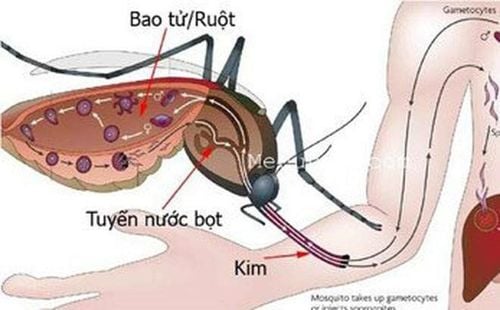
2. Signs of dengue hemorrhagic fever
Dengue fever has flu-like symptoms, usually lasting 2 to 7 days. The incubation period is 4 to 10 days after being bitten by an infected mosquito.The patient has a high fever (40°C/ 104°F) and is usually accompanied by at least two of the following:
Headache. Pain behind the eye socket. Nausea, vomiting. Swollen lymph nodes. Muscle, bone or joint pain. Rash. When it comes to severe dengue hemorrhagic fever, the severe complication phase occurs 3-7 days after disease onset. Body temperature drops, but that doesn't mean the person is recovering. In contrast, special attention should be paid to the following warning signs, as the disease may progress to severe dengue hemorrhagic fever:
Acute abdominal pain. Persistent vomiting. Bleeding tooth. Vomiting blood. Rapidly breath. Fatigue/irritated. When severe dengue is suspected, the patient should be taken immediately to the nearest emergency room or medical facility because:
Plasma leakage can lead to shock and/or fluid retention, with or without by respiratory failure. Heavy bleeding. Severe organ failure.
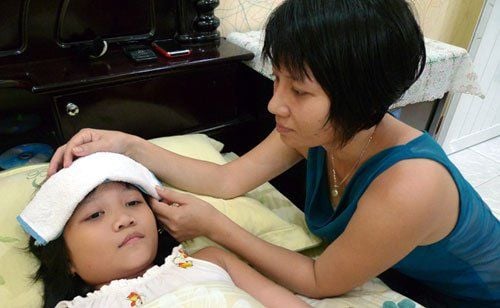
3. Dengue fever can be contracted up to 4 times in a lifetime
The dengue virus that causes hemorrhagic fever has 4 types: DEN1, DEN2, DEN3 and DEN4; A person can have dengue fever many times with different viruses. Once a person has recovered from a strain of dengue virus, lifelong immunity to that strain is acquired. However, they can still be infected with other strains of the virus. Subsequent illnesses are often more severe due to the effect of cross-immune complexes. Currently, in Vietnam, there have been four types of viruses, when there is a change, the circulation of the epidemic virus is easy to break out if the community is not immune to this virus.When warning signs of severe dengue fever appear, you should immediately see a doctor and be hospitalized for treatment. If detected early and treated promptly, the case fatality rate is less than 1%. In general, however, patients experience very unpleasant symptoms.
Currently, there is still no vaccine or specific drug for dengue hemorrhagic fever, patients need to go to medical facilities to be examined, monitored, rest and drink plenty of water, can take paracetamol to reduce fever and reduce fever. athritis. It is especially important not to take aspirin or ibuprofen because these drugs can increase the risk of bleeding.
Please dial HOTLINE for more information or register for an appointment HERE. Download MyVinmec app to make appointments faster and to manage your bookings easily.





